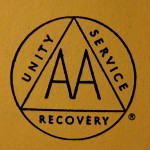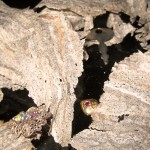
“Resentment is an emotionally debilitating condition that, when unresolved, can have a variety of negative results on the person experiencing it…” –Wikipedia
“It is plain that a life which includes deep resentment leads only to futility and unhappiness. To the precise extent that we permit these, do we squander the hours that might have been worth while.” –The Big Book/Alcoholics Anonymous p.66
Resentment is an intense stored anger that is re-experienced every time the person or circumstance that is causally linked to the offending event is triggered or remembered. Resentment binds our essential energy as it tyrannizes the central nervous system with a frustrated unrelenting cry of anguish. Resentment victimizes the felt victim in an avalanche of self pity. This fixation on self and self pity, for the Shamans of Ancient Mexico, was the number one reason human beings do not realize their full spiritual or, as they would say, energetic potential.
Like the Hindus, who hold that the Atman (The Eternal One—The Source—God) lies deeply embedded in the center of the physical body inside the hard-crusted shell of the ego, those shamans realize that the obsession with ego self as the only self, as the almighty self, must be broken open to truly discover and release our spirit potential. Those shamans purposefully put themselves under the thumb of horrific tyrants to learn to break open their attachment to ego self, manifested in self pity and its resentments, or perish defending it. For them, a ruthless obliteration of obsession with the ego self, with feelings of entitlement or resentment, was the only hope of releasing spirit energy and reaching total freedom, or enlightenment.

The Big Book, “the bible” of AA, asks its practitioners, in step 4 of this modern shamanic healing art, to make a searching and fearless moral inventory of themselves in a process that parallels the shamanic practice of recapitulation:
“We took stock honestly… Being convinced that self, manifested in various ways, was what had defeated us, we considered its common manifestations.
Resentment is the “number one” offender… From it stem all forms of spiritual disease, for we have been not only mentally and physically ill, we have been spiritually sick. When the spiritual malady is overcome, we straighten out mentally and physically. In dealing with resentments, we set them on paper. We listed people, institutions or principles with whom we were angry. We asked ourselves why we were angry. In most cases it was found that our self-esteem, our pocketbooks, our ambitions, our personal relationships (including sex) were hurt or threatened. So we were sore. We were burned up.” –The Big Book pp. 64-65
The founders of AA realized that alcohol was the ultimate petty tyrant for alcoholics that freely fed the delusion of ego self as the all-important almighty one, displacing the true spirit self. Under the brutal tutelage of this petty tyrant, alcoholics are led to a systematic destruction of the ego self, as the meaningful accomplishments and relationships of a lifetime are burned up as the almighty ego self maintains its hegemony. The alcoholic must break its attachment to ego self and self pity to be released from its superior lethal delusions evoked by spirit alcohol. In recovery, the ego self is broken open and humbled to surrender to the leadership of true spirit self, the higher power, and is thus saved from its delusional demise. The pathway to ego surrender is the dismantling of its attachments to self importance.

The Big Book pragmatically instructs in the dismantling of self pity: “We turned back to the list, for it held the key to the future. We were prepared to look at it from an entirely different angle. We began to see that the world and its people really dominated us. In that state, the wrong-doing of others, fancied or real, had power to actually kill. How could we escape? We saw that these resentments must be mastered, but how?
This was our course: We realized that the people who wronged us were perhaps spiritually sick. Though we did not like their symptoms and the way these disturbed us, they, like ourselves, were sick too. We asked God to help us show them the same tolerance, pity, and patience that we would cheerfully grant a sick friend. When a person offended we said to ourselves: “This is a sick man. How can I be helpful to him?” –The Big Book pp. 66-67
This technique takes us to the teachings of the Buddha of Compassion that all human beings are struggling beings—like ourselves. Rather than be offended, release the self and “offender” alike with compassionate energy. This doesn’t mean we have to be friends, for truly we can only really be connected to those traveling at similar speeds as ourselves, but we needn’t disdain the journeys of others that have disrupted or intersected with our own. This is the shaman’s appreciation of tyrants: No, they are not our friends, but they teach us to shed our complacency with self pity so that we may resume, full force, our egoless spirit journeys through infinity.
The Big Book goes on to instruct: “Referring to our list again. Putting out of our minds the wrongs others had done, we resolutely looked for our own mistakes. Where had we been selfish, dishonest, self-seeking and frightened? Though a situation had not been entirely our fault, we tried to disregard the other person involved entirely. Where were we to blame? The inventory was ours, not the other man’s. When we saw our faults we listed them. We placed them before us in black and white. We admitted our wrongs honestly and were willing to set these matters straight.” -p. 67

In this example, taking responsibility of our faults is fully owned, releasing the self from the burden of projected self truths. Once fully acknowledged, resentment is burned up and fully released in humble self-acceptance. Released resentment is the fuel that launches spiritual evolution, the stuff of recovery in AA and the stuff of infinite journeys in the shaman’s world.
Let us approach the stored energies of resentments to set us free, in a thorough 4th step in AA or in a thorough recapitulation, completing our shamanic journey in this world or in the shamanic world—or both!
Chuck
NOTE: I find AA and The Big Book—its lineage stemming back to the nagual psychiatrist Carl Jung—to be a most valuable, pragmatic guide to healing and spiritual evolution, in the same class as Magical Passes, the pragmatic guide to healing and spiritual evolution from the Shamans of Ancient Mexico.
